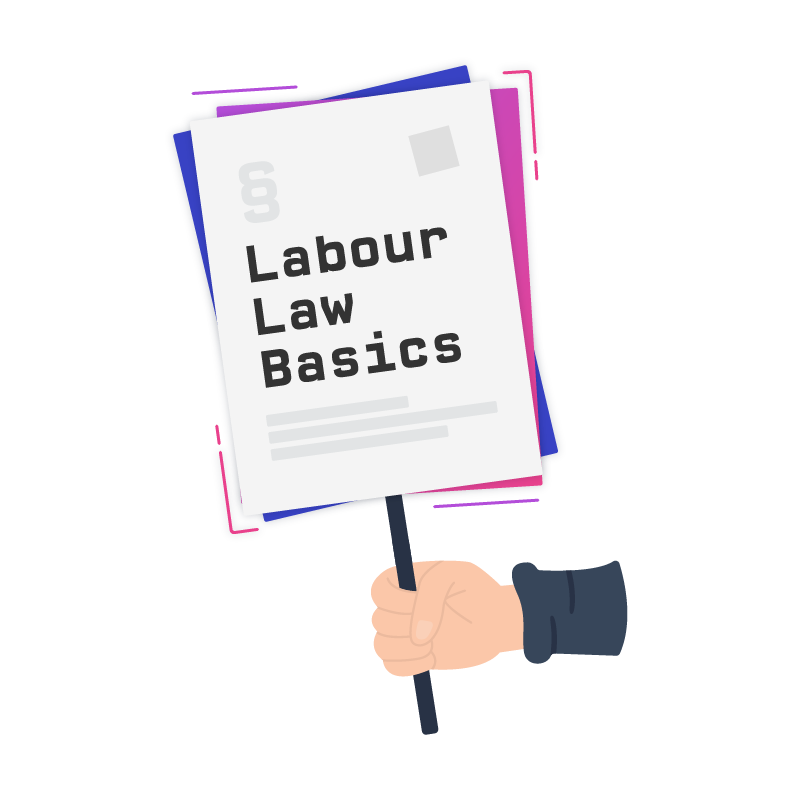Labour Law Basics

Working Time Is Living Time.
Germany’s Hours of Work Act (Arbeitszeitgesetz, ArbZG) defines the maximum legal duration of a workday. It also regulates breaks and rest periods. Minimum vacation time is determined by the Federal Act on Holidays (Bundesurlaubsgesetz, BurlG.) In most cases, collective bargaining agreements include much better arrangements for employees.
What Are My Maximum Working Hours?
According to the Hours of Work Act, work time is legally limited to eight hours a day and six days a week, for a weekly maximum of 48 hours. This limitation also applies to working from home. Sure, if push comes to shove, it’s ok to work longer hours. As an exception, up to 60 hours per week are permissible, with compensatory time off. You can’t be forced to fire-fight all the time, though. Companies with collective bargaining agreements tend to have significantly fewer weekly working hours.
And Who Is Overseeing All This?
Employers have to ensure all employees keep track of their working hours. The way this is done should be determined by the works council. According to recent court rulings, works councils can even impose that. By the way: A thorough documentation of working hours does not just protect employees against unpaid and excessive overtime that blurs the boundaries of the workday. It also helps companies comply with their legal obligations under the Hours of Work Act and avoid stiff penalties.
Take a Break!
Under the Hours of Work Act, you are entitled to a 30-minute break if your workday has between six and nine hours. If you work longer, you get 45 minutes. Those are just legal minimums, however. And keep in mind: Everything under 15 minutes does not count as a break.
Take a Vacation!
You are entitled to a minimum of four weeks of vacation per year. That’s the law. The exact number of leave days depends on whether you have a five-day or six-day workweek. Those working five days get 20 leave days, and those working six days get 24. And that is just the statutory minimum; more is always possible. Our collective bargaining agreements usually include 30 leave days for a total of six weeks off.
Need a more extended break? How about working part-time or going on sabbatical? During part-time employment, your vacation entitlement also depends upon the number of days you are working (not upon the total hours.) You can do the math yourself using this equation: Full-time vacation entitlement: Number of regular working days at your company x number of days you worked part-time = your vacation entitlement working part-time

